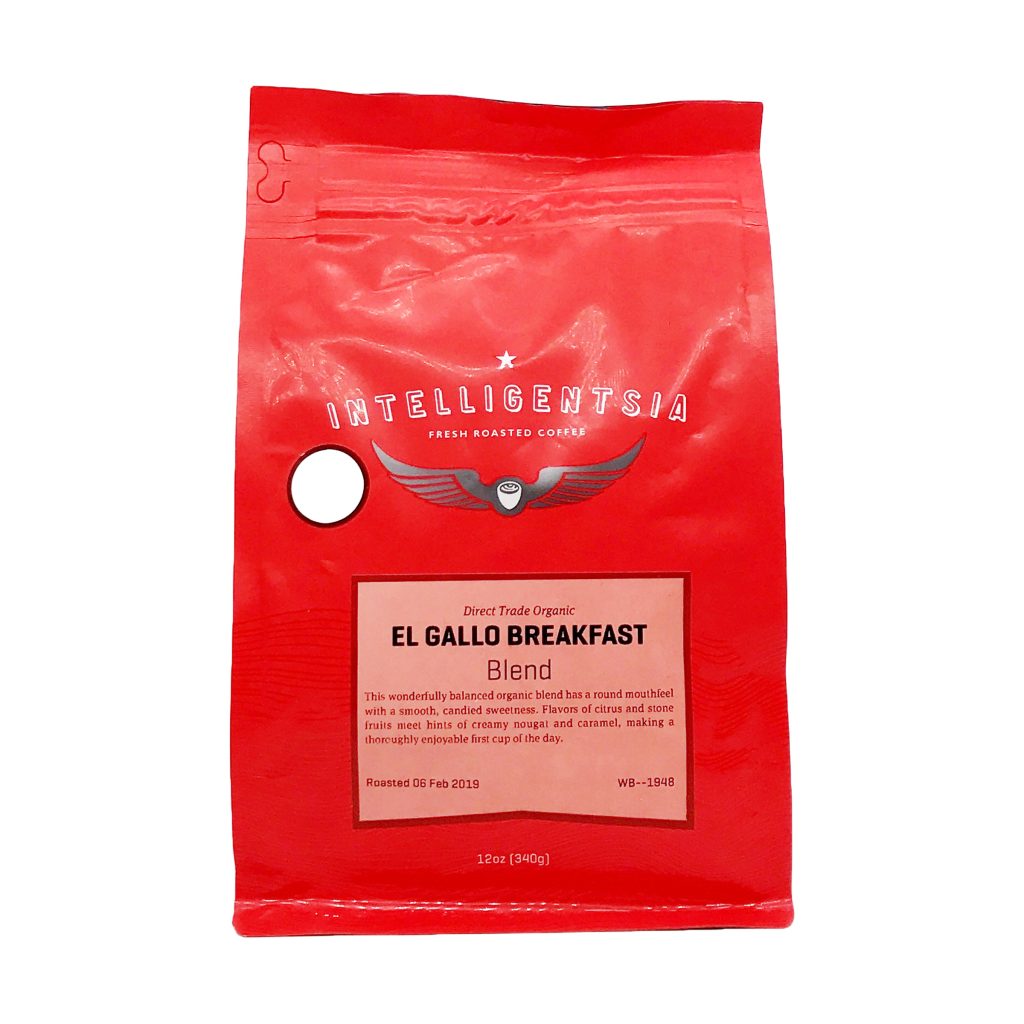It’s no secret that languages borrow from other languages. The French, despite their reputation as linguistic puritans, are known for enjoying “le weekend.” Any English-speaking fan of telenovelas has probably heard the word “look” being used to describe one’s personal physical appearance and style.

English has always had its fair share of borrowed phrases. When Europeans first arrived in the Americas they stole native words as well as land.

Americans have adopted many foreign words and expressions that were brought to our shores by people who came here from all over the world. New York City, which continues to draw immigrants, visitors, dreamers, and doers from every corner of the planet, has a particularly rich history of taking words of foreign origin and adding them to our unique regional lexicon.
Below is a list of 12 foreign words and phrases that one is likely to hear in New York. I’ve excluded words used only to describe foods such as pizza, tacos, and so on. They’re too easy! Most of these words have been brought to me by my English-language students who heard them at work, in social settings, or on television.
Click here to read the complete list.
Bodega – Look up the word bodega in a Spanish/English dictionary, and you’ll see the definition is simply “cellar” or as part of the phrase “bodega de vino” — wine cellar. On the island of Puerto Rico, it was used to describe the corner grocery store, the type of store that sold food, but probably other useful items as well. Puerto Ricans became U.S. citizens in 1917, and have been migrating to the mainland ever since, with many settling in New York. They took their version of “bodega” with them. These days all New Yorkers of every ethnicity refer to small neighborhood grocery stores as “bodegas.” It doesn’t matter whether the grocery is owned by a Puerto Rican or a Pakistani. We even use it as an adjective to describe the ubiquitous cats employed by the owners of these stores to control the mice. Bodega cats are so beloved by New Yorkers that they have become an Instagram sensation!

Stoop – The verb “stoop” has existed in English for hundreds of years, and means to lower one’s body or moral standards. Here are two examples: Joe stooped down to pick up some quarters that fell out of his pockets. Mary stooped to betraying all of her friends to get her dream job. In New York City, however, stoop as a noun, has a meaning, unrelated to this verb. In New York a “stoop” is the staircase and platform that exist in front of a single or multi-family dwelling. Example: In the television program Sex in the City, Carrie’s stoop featured prominently in many episodes. The word comes from the Dutch, “stoep.” The Dutch were the first Europeans to settle in New York. You will not hear it used much outside of the New York City/Hudson Valley area.

Schadenfreude – There are several German words that have no true English equivalent and have been borrowed by English speakers. Schadenfreude is one of the most popular. Schadenfreude combines the German words for “harm” and “joy” and translates as the experience of joy at the misfortune of others. Example: I felt great schadenfreude when I heard my ex-boss was fired from her position and having trouble finding a job. Unlike bodega and stoop, it is not a word used almost exclusively in New York, but it is probably used by New Yorkers more than by people in other parts of the country. That might be cultural, or maybe it’s simply that a certain class of New Yorkers, the intelligentsia, enjoys using foreign words! Which brings us to our next word….
Intelligentsia – While this word possibly derives from the Latin word for intelligence, it more likely originates with the Russian, intelligentsiya, which refers to the intellectual class. It is a word somewhat on the decline in its use in the United States. Occasionally, it is used ironically or disdainfully. Example: Jane considers herself a member of the intelligentsia because she has a subscription to The New Yorker. Recently, a Chicago-based coffee company called Intelligentsia Coffee and Tea has opened some New York cafes, so the term may be about to make a comeback.

Déjà vu– This is French for “already seen” and is used to describe the illusion one has of remembering something when one is actually experiencing it for the first time. Example: “I had the weirdest feeling of déjà vu when I got on the ship. I was convinced it was a premonition of disaster, but then my husband suggested I had probably seen too many movies like Titanic and The Poseidon Adventure.” This word is not a word used only in New York City, but you are likely to hear it here.

Faux pas – This is another French phrase, which literally translates as “false step.” In English we use it to mean an embarrassing remark or act in a social or business situation. For example: “I asked her about husband’s health, but it was a faux pas. I had forgotten they got a divorce last year.” As with some other words on this list, the use of this phrase is not limited to New York City.
Yiddish words. The rest of the examples in this post all derive from Yiddish.Some of my students are a little confused by Yiddish, so please allow me to explain. Yiddish was the common language of Eastern European and German Jews. Although there were Jewish populations spread across different geographical areas and countries, the Jews were one people sharing a common culture and religious heritage. They developed their own language,separate from biblical Hebrew, and separate from the primary languages spoken by non-Jews in their region. Yiddish is derived from German, but also uses many words from Hebrew, and borrowed words from Russian, Polish, and other languages. Most European native speakers of the language died in the Holocaust. As Jewish immigrants became assimilated they stopped teaching the language to their children. Today Yiddish is only used as the primary language of some ultra-religious (Hassidic) Jewish communities in the United States and Israel. These communities trace their roots to specific villages in Eastern Europe that were wiped out in World War II. Because many Yiddish-speaking Jews immigrated to the United States (particularly to New York) in the late 1800s and into the early 20th century, and interacted with other groups, many Yiddish words are in common use in the United States, especially in New York. Some of these words have traveled via movies, television, books, magazines, and now the internet, and are used throughout the United States, but New York City probably started using them first, and uses them more often even today. While Yiddish as a primary language is dying, Yiddishisms — words derived from Yiddish — are still commonly used by Jews and non-Jews in New York City. I could have easily chosen more than the following six examples!
Schtick — Schtick literally means “piece” but was also used in Yiddish to mean a prank or joke. The word is and was commonly used by comedians (many of whom were Jewish) to describe their routines. That’s how it came into common use in English. However, today, “schtick’ is often used in business or other settings to describe someone’s routine way of doing something, especially when that thing involves some kind of performance, such as giving presentations, selling ideas to clients, etc. For example: Barbara always starts off her speeches by asking for questions instead of waiting until she’s finished. It’s her schtick.

Schmooze — Schmooze comes from the Yiddish word shmuesn which means to chat. However, in its English usage, it really means to network, or to chat with people casually, but often as a preamble to business. As with other Yiddish derived verbs, we conjugate shmooze as we regular verbs in English: I shmooze, you shmooze, he schmoozes etc. We can also use them in different tenses, or as gerunds. Examples: I went to the party because I knew there would be potential clients and I could shmooze. Cheryl is smart, but she’s not so great at the art of schmoozing new clients.
Chutzpah — Chutzpah means audacity, but in the sense of shamelessness, or impudence. The classic definition is an old joke: A man kills both his parents. He goes before a judge and pleads for mercy because he is an orphan. If you grew up hearing the word, you understand that it is NOT pronounced with a “ch” as in “child” but with a gutteral sound similar to clearing one’s throat. In 2011, a politician from Minnesota attempted to use the word, but she got the sound wrong, leading many in the media to make fun of her.
Schlep — Schlep is a very New York word that can be used as both a noun and a verb. As a noun it denotes a place which is a great distance away or simply difficult to get to. Example as a noun: It’s such a schlep visiting my sister in the Bronx. You have to take two subway trains! As a verb it means to undertake a journey that is a schlep. For example: I schlepped all the way to Bronx to see my sister, but she wasn’t even home! Notice the double “p” connoting the short “e” sound in the past tense. It can also be used as a gerund: I’m sick of schlepping to my sister’s house. Why doesn’t she ever come to see me?
Maven — A maven is an expert in some area. In New York City and its environs, maven has been in common use for more than fifty years. However, the (non-Jewish) writer Malcolm Gladwell is credited with popularizing the term in his book The Tipping Point, published in the year 2000. It is now used in more parts of the United States and has become an accepted term in business. Example: “Have you met Bill yet? He’s our resident computer hardware maven. You can come to him for help if you are having any hardware related problems with your computer.”

Schmuck – In Yiddish the word “schmuck” is an obscenity. It is a vulgar term for penis. However, in English the word has come to (or evolved) to mean a person worthy of contempt or a fool. It’s a strong word to use, so you should be careful about using it, but it’s not obscene. Here’s an example describing bad behavior: I heard Joe insulted you. Don’t take him seriously! He can be a real schmuck sometimes. Here is another example, using it to describe someone who is acting foolishly: I can’t believe you are going ahead with the wedding. Don’t be a schmuck! Tracy doesn’t love you. She loves your money!
There are many other foreign words that Americans (and New Yorkers) use all the time. Feel free to comment below and add some that you have heard!
(If you are interested in English lessons with Marion, please check out the website.)